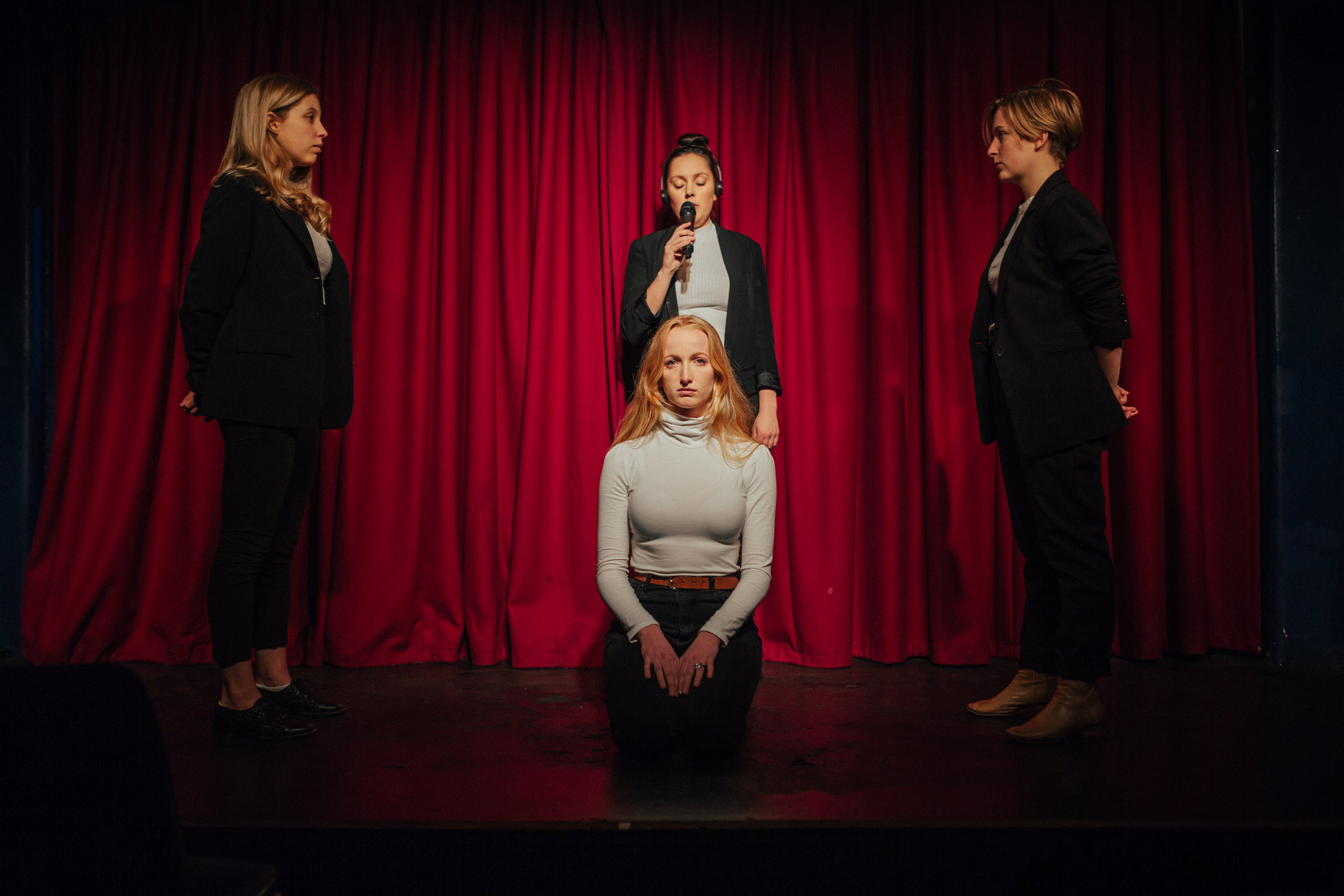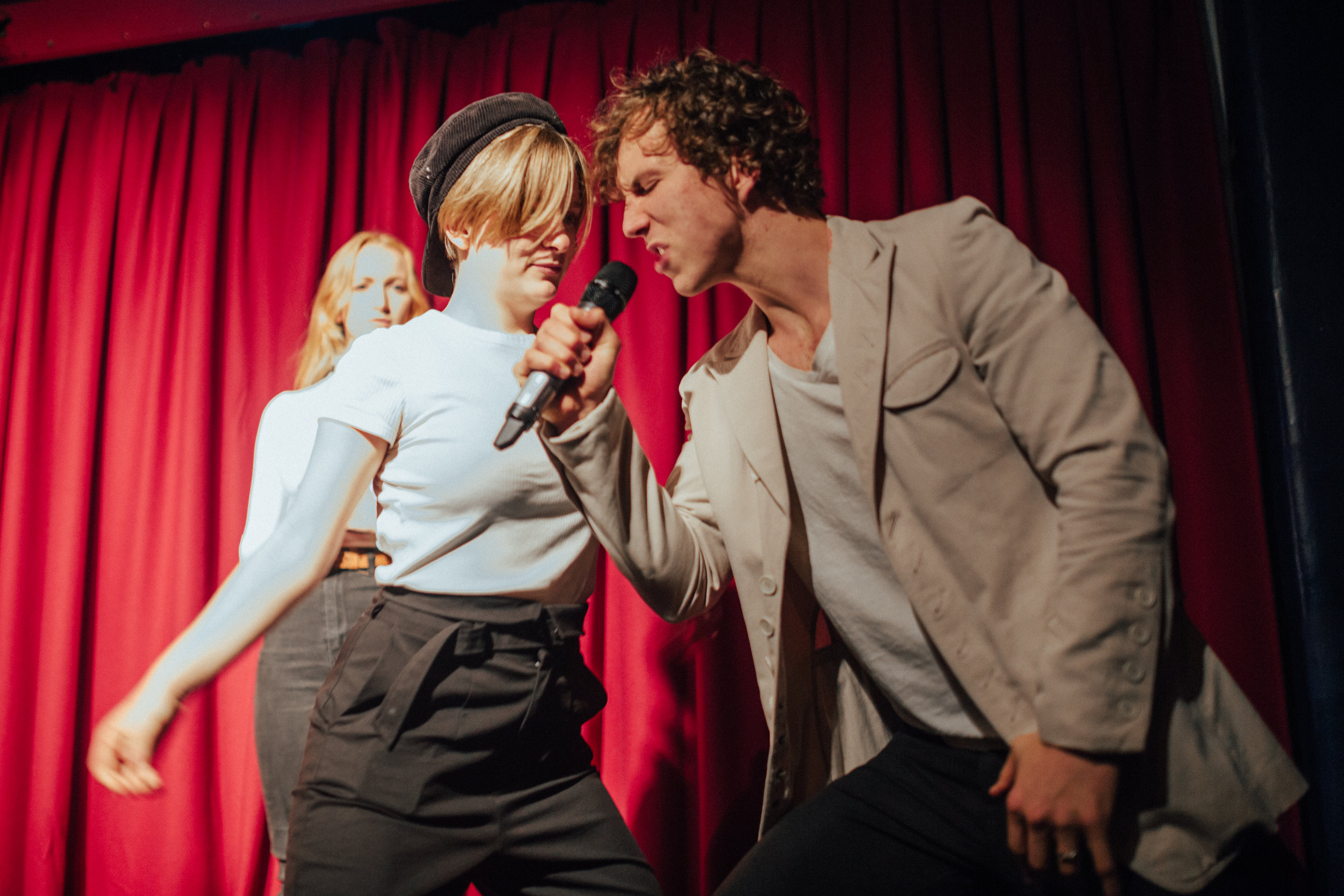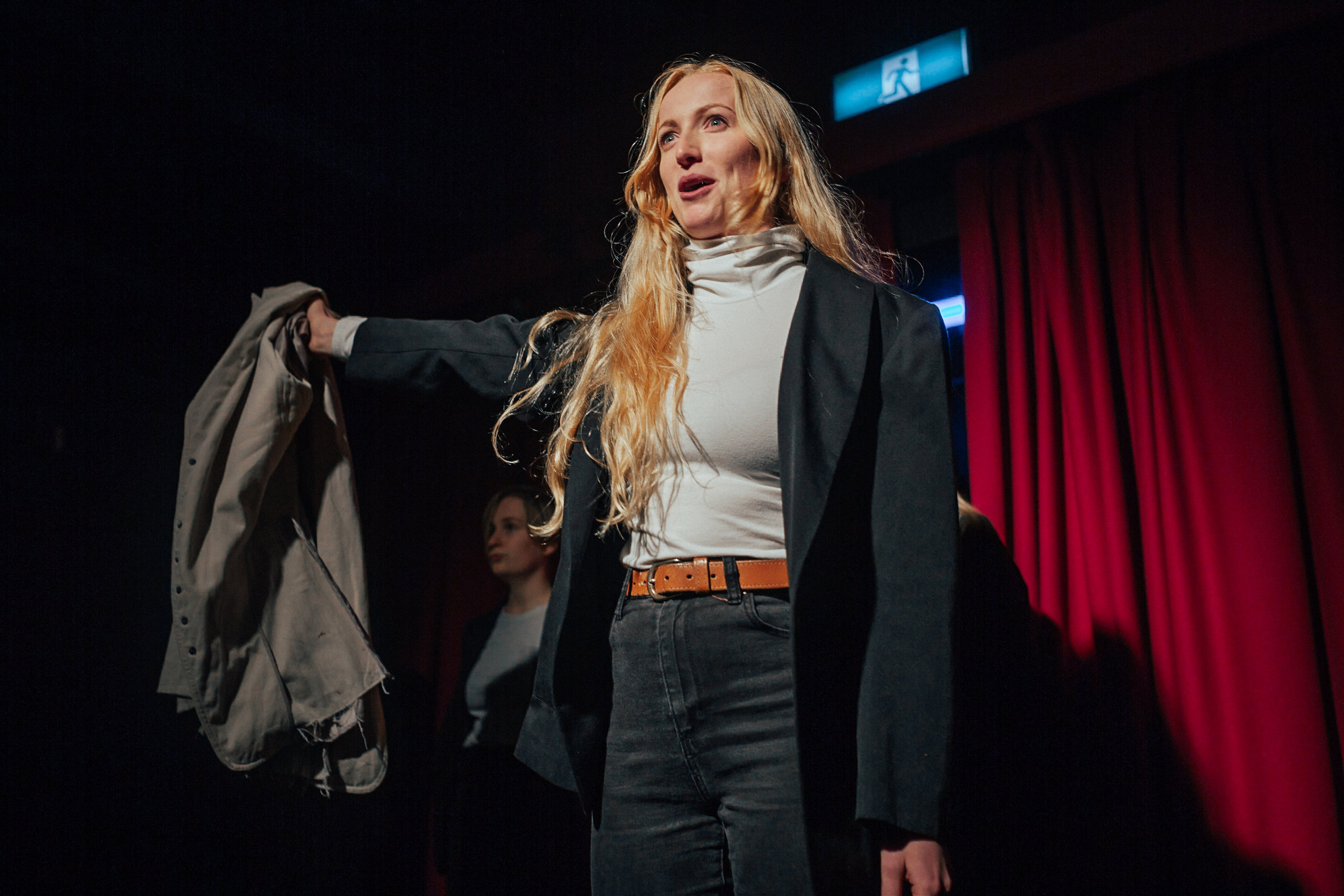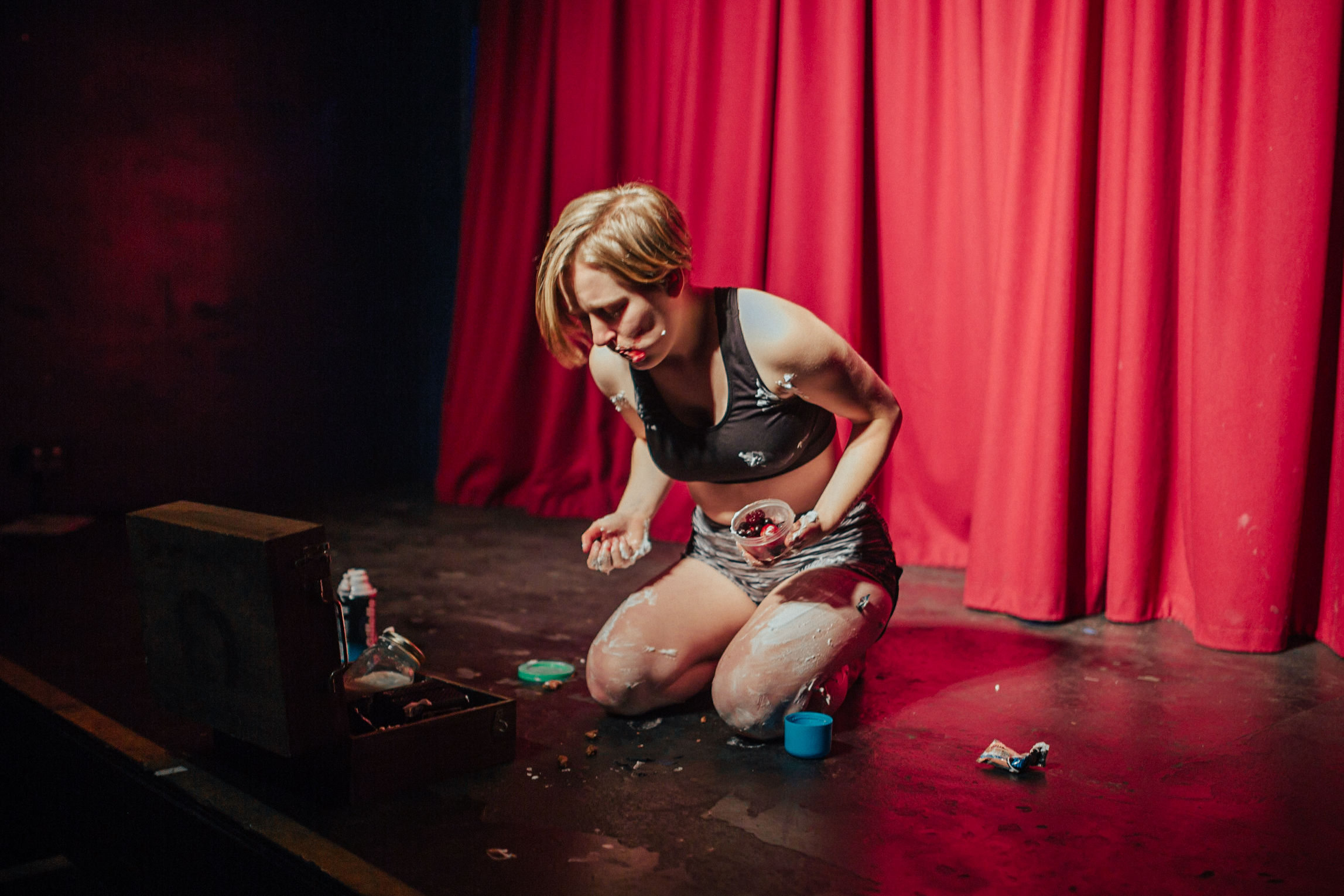10-16 SEPTEMBER - THE BUTTERFLY CLUB
↓ ABOUT
This show will change the world.
We hope it will… but we have day jobs to do. No one seems to be listening. Budgets need to be stuck to. Sponsors need to be pleased. The director’s a tyrant. Oh and we’ve just been sent a cease and desist letter.
The Public Domain Opera is about failure. The failure to have your voice heard. The failure to make a difference.
How can you bring down capitalism with song when the songs aren’t free?
↓ TEAM
Inspired by *The Beggar's Opera* by John Gay
Directed by Saro Lusty-Cavallari
Produced by Imogen Gardam
Assistant Drector Mary Angley
With With Jack Dixon-Gunn, Laura McAloney, Sophie McCrae, Laura Strobech and Clare Taylor
↓ THE STORY SO FAR
So you probably want an explanation for what exactly this show is.
Well to explain that we need to go back. Way back. Back to 1728.
In 1728 John Gay premiered The Beggar's Opera, a satire of Italian opera popular amongst the nobility that drew mainly on popular arias, songs and folk tunes for its melodies. The piece became one of the most popular plays of the 18th century and in many ways was the first ever 'jukebox musical'. Gay's combination of operatic conventions and popular music forms proved a hit with a diverse audience and this formal approach extended to the plot, which concerned itself with social inequality and populated the stage with rejects of society usually kept as far away from opera as possible. While Gay's approach to composition was something more akin to a mixtape compiler, the plot and character's were basically his creation. Overnight caracters such as Macheath and Polly Peachum became household names and variations on the plot would continue to be reinterpreted in Victorian penny dreadfuls and other adaptations.
Jump forward to 1927 Berlin and Elisabeth Hauptmann begins a German translation of Gay's text with no particular end goal in mind. However after showing the text to her partner Bertolt Brecht, he has an idea. Brecht has just been approached by a German producer who needs a quick and easy success and has tapped Brecht and his collaborator Kurt Weill to whip something together. Recognising the right kind of fable to express his recent conversion to Marxism, Brecht begins work on his own version of The Beggar's Opera with new songs by Weill. Not long before opening the title is changed to the now famous Threepenny Opera.
It's worth pausing to note how complex the issue of authorship already is. Gay's manuscript is original but pillages almost every form of popular music for its score. Meanwhile the question of Brecht's authorship is thornier. Brecht's reputation amongst his peers was contentious because of his recycling of narrative and careless interpolation of other's material. An avid cabaret fan, Brecht dismissed questions of authorship and originality and defended his approach of compiling and reinterpreting different sources to construct a new political statement. Furthermore Brecht's relationship with his collaborators throws notions of authorship further up in the air, particularly his habit of taking material from his numerous girlfriends - most notably Hauptmann. Who wrote what in The Threepenny Opera is an unresolved question; Hauptmann's name has been taken off and added back on over the years although she is now listed as a co-author (which coincidentally extends the copyright considerably as she died in 1971) and even Weill's contributions are disputed by friends of Brecht who say that he may have composed some of the music. This is all without even acknowledging the swathes of text that are direct translations of John Gay and some other English writers, including Rudyard Kipling. But of course this should have been immaterial; The Threepenny Opera was thrown together chaotically in a few months by young German artists arguing for a collectivisation of all property anyway...
Jump forward again to 2018 Melbourne and once again a young artist is pitching an adaptation of The Beggar's Opera to his partner in both life and art. When the director and co-creator Saro pitched the show as Montague Basement's Melbourne debut to producer Imogen, the idea was to adapt the plot quite liberally and keep the Weill melodies but with new lyrics. The thinking was that because Kurt Weill's work had passed into the public domain in Australia and Brecht's contributions didn't cover any of the characters or plot, an adaptation that didn't directly use any of Brecht's text would be fair game. In fact the most obvious piece of copyrighted material being employed was the title itself which elevated Brecht's version of The Beggar's Opera above that of his Antigone or Coriolanus.
The goal of the project was to return Threepenny to its roots. The roots of both Gay and Brecht. We had always found it a bit startling how much of a moneymaker this shambolic marxist musical had become in the modern theatre scene and so we wanted to try and bring the show back to its cabaret roots and let the political commentary cut through all the weimar chique that had built up around the play. What we didn't realise what that lucrative status of The Threepenny Opera would come back to bite us in a big way.
As the play developed with the cast it became less and less a performance of anything resembling either Gay or Brecht and more of a meditation on theatre and capitalism that used The Threepenny Opera as a provocation. The songs were still there but what had emerged was a chaotic and deconstructive collage of theatre, cabaret and performance art that became less a performance of The Threepenny Opera and more of a performance about our own failure to put on The Threepenny Opera.
And then we got the letter.
10 days before we were to open we awoke to a frighteningly specific letter from the Schott Music Corporation, representing both the estates of Weill and Brecht (and Hauptmann apparently), demanding we cancel the production immediately. In particular we were reprimanded for altering Weill's music into contemporary popular styles, our own publicity quotes thrown back at us. While we contacted a few people to test out the validity of our case (our argument was pretty good, apparently but not set in stone) we realised almost immediately that there was no point in risking a lawsuit that could destroy our already pretty vulnerable company. The Threepenny Opera: Adjusted For Inflation
But the thing was that we had already integrated so many metatheatrical elements into the show that we realised not only was almost all of the material salvageable; a cease and desist letter was exactly the final ingredient the show needed to tie together its loose series of comments on making art under late capitalism. As much as we mourned our amazing eletropop renditions of Pirate Jenny and Mac The Knife it became apparently immediately that the show we now had on our hands was better. A frightening letter from a lawyer came to feel like an inspiring session with a dramaturg.
And that is how The Public Domain Opera was born.
↓ REVIEWS
"a brave and ambitious show about resilience in the face of setbacks"
- Weekend Notes





